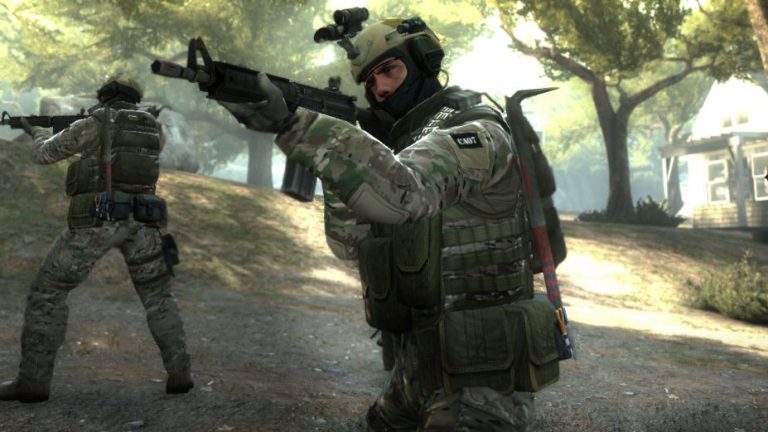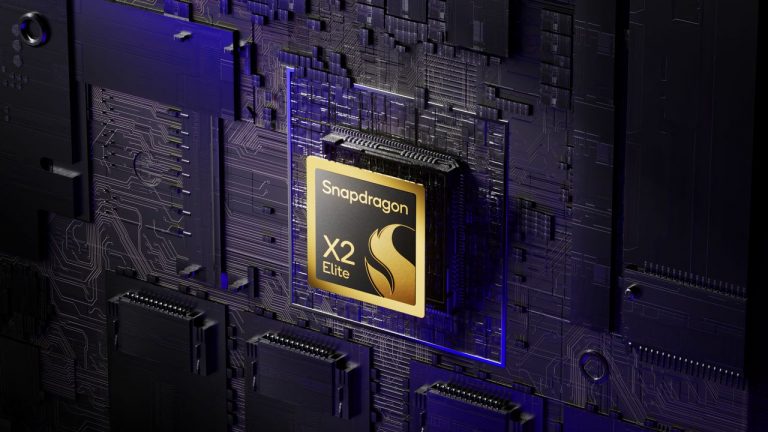AceZone might not be a name well known in gaming headsets but the company has been building them for esports tournaments for a number of years. The A-Spire is the company’s attempt to branch out into the at-home gaming market, but do tournament-grade features make a great gaming headset for desk-dwellers?
The short answer: yep.
The A-Spire costs $319/£299/€319, which surprisingly makes it AceZone’s cheapest. Above it, the A-Rise at $749 and the A-Live, which is made to order. So, what does all that cash get you?
Firstly, a primarily wired headset. The A-Spire primarily relies on a USB Type-A connection from a removable braided cable to connect to your PC. What I mean by primarily is this headset also offers Bluetooth functionality, though it’s intended for use connecting to the AceZone mobile app and for a bit of light listening on the move. The headset comes with a 35-hour battery to keep you juiced on the go.
(Image credit: Future)
Drivers: 40mm
Frequency response: 20–20,000Hz
Microphone: Flip-to-mute boom arm
Connectivity: USB Type-C to Type-A cable, Bluetooth, 3.5mm jack
Features: Active noise cancelling, game-specific EQs (Apex Legends + Counter-Strike 2)
Battery: ~35 hours (Bluetooth connection)
Weight: 270g
Price: $319 | £299 | €319
AceZone is pretty keen to point out that this wireless connection is not intended for gaming. Instead, it’s recommending that you stick to a cable connection for the lowest latency and highest quality.
It’s a bit of an odd setup. The wireless connectivity feels a little tacked on but I want wireless connectivity for this amount of money. It’s good to have that Bluetooth option available, anyways. Dive a little deeper into the wired connection and it’s clear performance and quality in games is the primary focus of the A-Spire.
The A-Spire comes with 40mm dynamic drivers. Not the biggest you’ll find on a gaming headset, they produce an extremely well defined sound. There’s a lot of clarity in the upper reaches of the range, which is no accident. The headset is tuned to aid the user in picking out encroaching enemies, namely in FPS games, and in my experience it really delivers.
There’s one EQ preset called AZ Gaming, which is tailored to most games, and there are two further tweaked and optimised presets for specific games: one for Apex Legends and one for Counter-Strike 2. These are designed to pick up the most pertinent audio in each game and offer clear forewarning of enemies approaching. I played some Apex Legends to get a feel for the difference the EQ makes, and it’s a subtle change, but I feel it’s worth enabling. These two EQ modes are locked into the hardware, however, which means I doubt we’ll see any further game support added down the line.
(Image credit: Future)
There’s also a music preset available in the AceZone app. This removes some of the sharp edges present with the AZ Gaming preset and the result is a surprisingly decent headset for casual listening.
Generally, the A-Spire offers adept audio no matter what you throw at it. But what makes this headset stand out to me is the inclusion of genuinely decent active noise cancellation. This is a common feature among headphones you’d wear out of the house, but less so on one intended for sitting at a desk at home. The A-Spire, I’m told, is tuned to exclude sounds you might encounter at home, specifically speech, and it does a good job.
Active noise cancelling works wonders for helping me focus on my game and work. I’m able to adjust the level of noise cancellation within the AceZone mobile app, though I often opt for high and do my best to entirely block out the world around me. Importantly, it’ll dampen the sound of my mechanical keyboard, and with some music playing in the background, even relatively quietly, you can mostly block out the keyboard altogether. That’s helped along by plush earpads and a closed-back design to keep a good level of noise isolation (passive sound blocking).
(Image credit: Future)
The A-Spire is also exceptionally comfortable thanks to its pair of thick earcups and padded headband. I’ve been wearing the headset near enough non-stop through the work day and sometimes into the evening (I’ve been losing many hours to Project Zomboid and The Finals as of late) and I’m yet to run into major discomfort. Like any headset, if you wear it for eight-plus hours it can become a little uncomfortable, but compared to the Corsair HS80 Max I was using previously, which does cause me to struggle over long periods, the A-Spire feels like a big improvement.
The A-Spire comes with a lovely black carry case if you’re keen to take this one outside of the house, and the headset is designed to fold away neatly to save some space. Though with a built-in microphone it’s not the sort of headset I’m looking to take outside with me often.
(Image credit: Future)
(Image credit: Future)
The microphone on the A-Spire sounds superb. That should be a given at this sort of price point and with this headset’s focus on competitive gaming, but I’m thankful to report it lives up to the expectations upon it. This is a noise cancelling microphone in the form of a bendy boom arm that flips down from the side of the headset, which has a small clip on the headband to hold it in place. A small green mic symbol marks the direction of the microphone, which you’ll want to get right or risk cancelling your own vocals out.
So far, so good for the microphone’s perceived quality. From those on the other end of the line I’ve had no complaints, but more so, I’ve even had one compliment on how clear I’m coming through with the A-Spire.
Though the microphone is also the cause of most of my complaints with the A-Spire. Firstly, it’s conveniently flip-to-mute but the microphone needs to be at its maximum vertical position to engage the mute function. I’d prefer it to activate sooner. Secondly, there’s no tactile response when mute is engaged, which often means I’m never too sure if my sneeze will be heard by my entire Discord call or not. Thirdly, the foam tip sometimes falls off and you have to work it gently back on while trying not to damage it.
There’s a spare included in the box, but I wish it was easier to keep on in the first place. Lastly, and this might be more my fault than the headset, the small plastic keep intended to keep the mic in place when stored upright has snapped off on one end. This clip is removable, and in theory, you could replace it, but I don’t much love the design to begin with.
Small complaints individually but combined these amount to a microphone boom arm design that I feel could be improved upon by a refreshed design.
(Image credit: Future)
Above: the AceZone app is extremely easy to use. Bonus: I’m bad at taking photos of screens without my camera in them.
The other small complaint of mine is the use of a braided cable. I know they’re robust and the go-to thing for gaming peripherals, but they’re scratchy and you really hear that feedback through the left earcup while wearing the A-Spire. It’s less noticeable once you crank up the volume, but a non-braided cable would make all the difference to solving this problem once and for all.
But for my few small complaints, I do find the A-Spire to be a convincing gaming headset. The audio quality is spot-on for gaming, as is the microphone quality, and I don’t find myself dreading wearing it for hours on end.
(Image credit: Future)
✅ You’re in a noisy environment: The active noise cancellation on the A-Spire is really impressive. It works wonders for both your own gaming experience in a loud area and anyone listening to you talk.
✅ You play Counter-Strike or Apex Legends religiously: For players of these two games, or really any competitive FPS, the A-Spire offers a clear and defined audio profile that should help you stay alert in-game.
❌ You want a wireless gaming headset: This headset offers Bluetooth connectivity for connecting to the mobile app and for listening to music while out and about. It’s not intended as a wireless headset for PC gaming. Instead, check out the best wireless gaming headsets.
The A-Spire is on the very expensive end of the gaming headset market. There’s really no getting around just how expensive it is at $319/£299/€319, either. No regular sale is going to knock enough of the price to make it much more affordable versus a more traditional wired gaming headset. That’s what has me stuck. While you won’t get active noise cancelling or the highly customised EQ profiles out of the HyperX Cloud Alpha or Razer BlackShark V2, they’re a fraction of the price.
Whether the A-Spire is worth it boils down to two things: active noise cancelling and pinpoint accuracy in games.
Say you’re a competitive gamer who’s already spent many hundreds of dollars on a rapid refresh rate gaming monitor and matching high-speed peripherals in a bid to reduce latency to the bare minimum. The type of person to ditch 4K in favour of 1080p, or turn off all lighting and only use wired peripherals just in case it saves you a millisecond delay. The A-Spire just might just be the headset for you.
The other use case is for anyone in a particularly noisy environment. I’ve known gamers who hop on Discord calls coming from what sounds like a restaurant’s kitchen on a Saturday night. The active noise cancelling on the A-Spire could be of major benefit to both that sort of gamer’s experience and those forced to listen to them.
For those who must be on top of their game, the A-Spire gets a recommendation from me. Otherwise, there are a heap of other wired gaming headsets worth spending a lot less money on.












